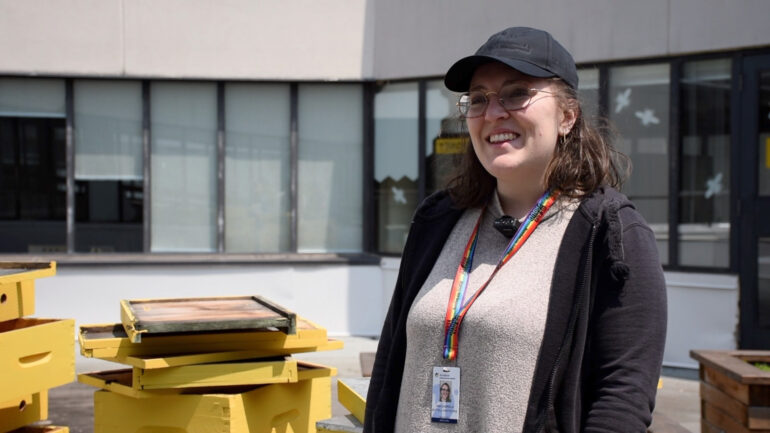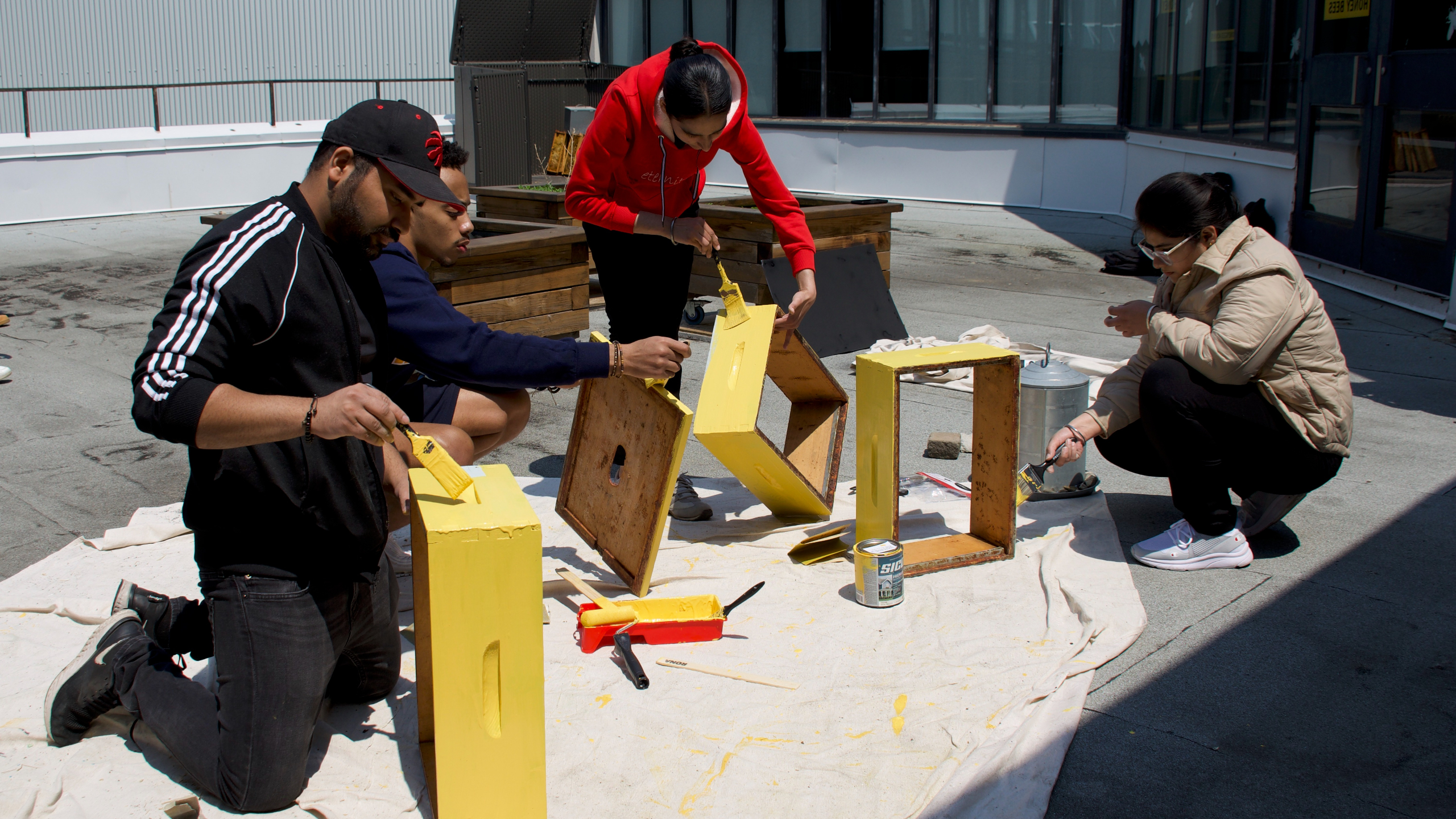Kareem Saidahmed filled a courtyard with the raspy sound of sandpaper as he helped to refinish the worn-out wooden beehives outside the North campus staff lounge.
Saidahmed, 22, a Business Management student was one of many students to help paint the beehives to help welcome honeybees back to the North Campus for the first time since the pandemic.
“Bees are crucial to nature I think,” he said. “We really need them in our ecosystem.”
The restoration project is an effort by the Office of Sustainability to engage students in its campus pollinator initiative.
The event organizer, Gabi Hentschke said her office wants to make sure beehives on both the North and Lakeshore campuses are waterproof before bringing the bees back.
“For the bees, this is their house, so we don’t want any leakage or any issues to happen,” Hentschke said. “It’s also a really fun activity for students to participate in as well.”

The staff of the Humber Office of Sustainability, Gabi Hentschke said being a certified bee campus demonstrates Humber's commitment to providing a healthy and safe environment to bees and native pollinators. Photo credit: John Wong
Hosting bee colonies was part of the college’s most recent strategic plan to create a sustainable campus and community.
“It’s pretty much a demonstration of Humber’s commitment to being this safe and healthy environment for our pollinators, especially native pollinators,” Hentschke said.
However, the initiative goes beyond bees and stretches out to other pollinators, including butterflies, bats and birds, she said.
The Humber Office of Sustainability is working with multiple parties, including beekeepers, gardeners and Humber Arboretum staff to create a safe habitat for pollinators by planting native plants and avoiding harsh chemicals.
Beekeepers Fran Freeman and John Coffman have been caring for Humber’s honeybees using sustainable approaches.
Freeman said in industrial agriculture practices, bees are fed with sugar to boost their energy so they can produce more honey, but she preferred that the bees respond to their environment by collecting available nectar.
“Sugar has no nutrition in it whatsoever. It’s just energy,” she said. “We would rather that they’re going for the nectar, which has not only the energy, but it has vitamins and minerals and phytochemicals as well, which are medicinal.”

Beekeepers Fran Freeman and John Coffman have been caring for Humber Bees and running beekeeping workshops at Humber College and the Humber Arboretum. Photo credit: Melody Lam
Freeman said as a bee campus, they not only care for the honeybees, which are not native bee species but also provide habitat and food for other native bees.
She said compared to honeybees, native bees are even more threatened by habitat fragmentation and degradation.
“Honeybees will travel three to six kilometres looking for nectar and pollen and anything else they need, whereas a lot of native bees will travel a hundred meters, or way less than a mile so they need for their nesting sites and their food sites to be really close together,” she said.
Freeman said native bees are essential to the food supply and they are also keystone creatures for pollination for the entire ecological pyramid.
“The bees have different roles to play in the pollination system,” she said.
“When you think of bees, everybody thinks of honeybees and they don’t realize they’re about 300 or more different species of bees just in Toronto, in our area,” he said.
“And these are just as important, if not more important than honeybees,” Coffman said.

